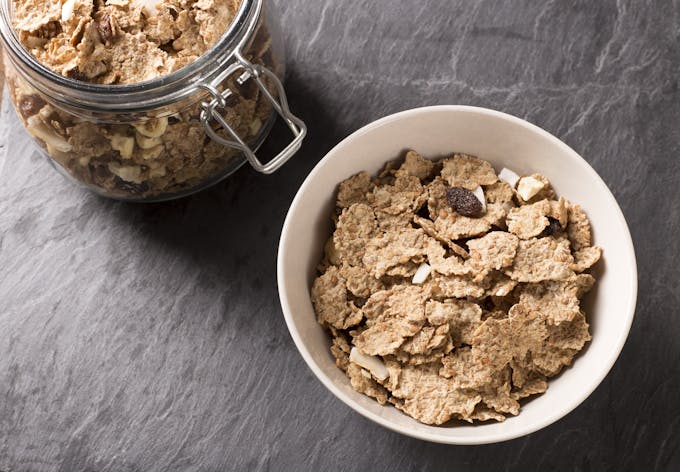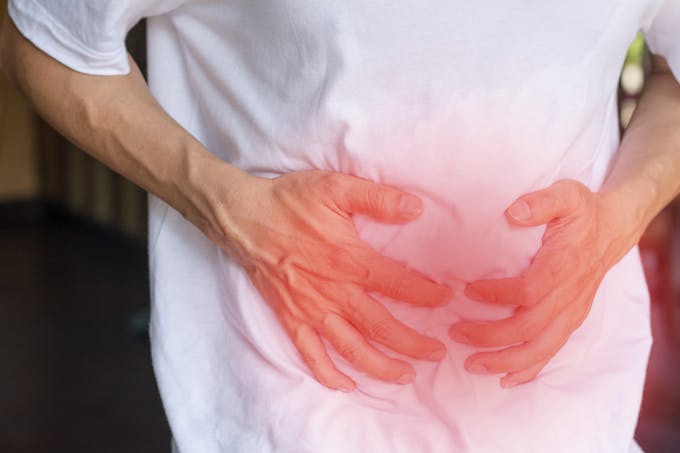The Fiber Myth

How to Read Your Body
Learn to recognize common symptoms and uncover their underlying health issues
Understand the signs of nutrient deficiencies to manage your health
Explore the four metabolic body types and the core factors that influence them
Interpret your body's signals from head to toe to identify potential health concerns

How to Read Your Body
Learn to recognize common symptoms and uncover their underlying health issues
Understand the signs of nutrient deficiencies to manage your health
Explore the four metabolic body types and the core factors that influence them
Interpret your body's signals from head to toe to identify potential health concerns

How to Read Your Body
Learn to recognize common symptoms and uncover their underlying health issues
Understand the signs of nutrient deficiencies to manage your health
Explore the four metabolic body types and the core factors that influence them
Interpret your body's signals from head to toe to identify potential health concerns

How to Read Your Body
Learn to recognize common symptoms and uncover their underlying health issues
Understand the signs of nutrient deficiencies to manage your health
Explore the four metabolic body types and the core factors that influence them
Interpret your body's signals from head to toe to identify potential health concerns

How to Read Your Body
Learn to recognize common symptoms and uncover their underlying health issues
Understand the signs of nutrient deficiencies to manage your health
Explore the four metabolic body types and the core factors that influence them
Interpret your body's signals from head to toe to identify potential health concerns

How to Read Your Body
Learn to recognize common symptoms and uncover their underlying health issues
Understand the signs of nutrient deficiencies to manage your health
Explore the four metabolic body types and the core factors that influence them
Interpret your body's signals from head to toe to identify potential health concerns

How to Read Your Body
Learn to recognize common symptoms and uncover their underlying health issues
Understand the signs of nutrient deficiencies to manage your health
Explore the four metabolic body types and the core factors that influence them
Interpret your body's signals from head to toe to identify potential health concerns

How to Read Your Body
Learn to recognize common symptoms and uncover their underlying health issues
Understand the signs of nutrient deficiencies to manage your health
Explore the four metabolic body types and the core factors that influence them
Interpret your body's signals from head to toe to identify potential health concerns

Beginner’s Guide to Healthy Keto & Intermittent Fasting
Receive a step-by-step guide to starting Healthy Keto® and intermittent fasting
Learn about foundational principles and best practices for beginners
Get detailed visual guidance on portion sizes and meal composition
Discover how to set achievable goals and monitor your progress
Find practical tips for overcoming common challenges and staying motivated

Beginner’s Guide to Healthy Keto & Intermittent Fasting
Receive a step-by-step guide to starting Healthy Keto® and intermittent fasting
Learn about foundational principles and best practices for beginners
Get detailed visual guidance on portion sizes and meal composition
Discover how to set achievable goals and monitor your progress
Find practical tips for overcoming common challenges and staying motivated

Beginner’s Guide to Healthy Keto & Intermittent Fasting
Receive a step-by-step guide to starting Healthy Keto® and intermittent fasting
Learn about foundational principles and best practices for beginners
Get detailed visual guidance on portion sizes and meal composition
Discover how to set achievable goals and monitor your progress
Find practical tips for overcoming common challenges and staying motivated

Beginner’s Guide to Healthy Keto & Intermittent Fasting
Receive a step-by-step guide to starting Healthy Keto® and intermittent fasting
Learn about foundational principles and best practices for beginners
Get detailed visual guidance on portion sizes and meal composition
Discover how to set achievable goals and monitor your progress
Find practical tips for overcoming common challenges and staying motivated

Beginner’s Guide to Healthy Keto & Intermittent Fasting
Receive a step-by-step guide to starting Healthy Keto® and intermittent fasting
Learn about foundational principles and best practices for beginners
Get detailed visual guidance on portion sizes and meal composition
Discover how to set achievable goals and monitor your progress
Find practical tips for overcoming common challenges and staying motivated

Beginner’s Guide to Healthy Keto & Intermittent Fasting
Receive a step-by-step guide to starting Healthy Keto® and intermittent fasting
Learn about foundational principles and best practices for beginners
Get detailed visual guidance on portion sizes and meal composition
Discover how to set achievable goals and monitor your progress
Find practical tips for overcoming common challenges and staying motivated

Beginner’s Guide to Healthy Keto & Intermittent Fasting
Receive a step-by-step guide to starting Healthy Keto® and intermittent fasting
Learn about foundational principles and best practices for beginners
Get detailed visual guidance on portion sizes and meal composition
Discover how to set achievable goals and monitor your progress
Find practical tips for overcoming common challenges and staying motivated

Beginner’s Guide to Healthy Keto & Intermittent Fasting
Receive a step-by-step guide to starting Healthy Keto® and intermittent fasting
Learn about foundational principles and best practices for beginners
Get detailed visual guidance on portion sizes and meal composition
Discover how to set achievable goals and monitor your progress
Find practical tips for overcoming common challenges and staying motivated
Exploding the Fiber Myth: What You Might Not Know That Could Be Hurting You
By Dr. Eric Berg
There are a lot of myths surrounding fiber, especially about how much fiber we need daily, how good fiber is for us, how much fiber we need to cleanse the colon, and where we should get our fiber. These myths have been pretty pervasive for a long time now.
Exploding the Myths about Fiber

Do you know those people who have those very distended, swollen, basketball-looking bellies? One of the main causes of this kind of big belly is not always necessarily fat. In fact, it could merely be bloating in the intestines because they’re consuming too much fiber.
This fiber myth has been around 30 years now—this myth that the more fiber you eat, the more you will decrease your likelihood of developing colon cancer. This is a myth because eating too much fiber might actually increase your risk of developing colon cancer.
When you are constipated, sometimes the doctor will tell you to eat more fiber or to take Metamucil or other synthetic forms of fiber, and you might experience some relief in constipation, but that is because of the negative things this extra fiber is doing to your colon, not the positives. See, what all this fiber really does is irritate and stimulate the colon, making it dump waste faster.
Fiber isn’t even necessarily forming the bulk of your stool.
Here’s What Happens in the Body when We Take/Eat Too Much Fiber
Here’s what really happens from this fiber, especially when we get our fiber from whole grains, bran, Metamucil, and other over-the-counter fibers people take. These forms of fiber create a lot of inflammation in the colon and cause a lot of mechanical damage as the fiber passes through the intestines as well.
See, one myth that people have about fiber is that it improves digestion because it slows down the digestive process. The only reason it does this, though, is because it actually impedes the digestive process. And impeding the digestive process can create a host of problems including heartburn, ulcers, constipation, IBS, chronic inflammation, and Crohn’s disease.

Any undigested fiber in your gut is basically food for undigested microbes. That’s why if you eat too much fiber, you get gas. These undigested microbes are becoming fermented in the gut, just as when you make beer, bread, and other alcohols.
That’s why too much fiber can create an over-gas situation because all of these bacteria are basically going crazy in the gut, causing fermentation and, consequently, causing you to blow up like balloon, where your stomach looks distended and swollen.
Too much fiber can be particularly damaging if it’s let to go untreated for a period of time.
So, How Am I Getting Too Much Fiber Anyway?
The ways you could be getting too much fiber in your diet could be in that you’re eating too many grains, or it could be that you’re eating too many of certain types of vegetables, especially cruciferous vegetables like kale, broccoli, Brussel’s sprouts, cabbage, cauliflower, and even avocados. Kale, by the way, is the least fibrous of the cruciferous vegetables.
Why would these vegetables be problematic? Well, they can create bloating, and if you bloat from those vegetables, this merely means that you have not established enough good bacteria in your gut to digest them properly.
And some people can enjoy these vegetables with no gut reactions at all.
Myself, in the past, I had the biggest problem with broccoli. I would have so much abdominal pain that I would double over. And even in when I only had traces of broccoli in certain foods, like broccoli soup, it would still do that.
What I eventually did so that I could enjoy the nutrient properties of these vegetables without experiencing any negative reactions such as gas and bloating was to juice them. When I began juicing broccoli, for example, and I was able to drink this juice with no negative reactions, I knew that the problem was the fiber.
So for those of you that experience problems like this after eating your favorite green vegetables, try juicing them or blending them.
Many of my patients and clients ask me what’s more beneficial to the health, juicing or blending?
Well, it really depends.
If you can or cannot digest some of these fibrous vegetables, and if you react to things like Brussel’s sprouts, cabbage, and broccoli, then just try juicing them. Then, see if the reaction goes away. If it does, bam, you’ve got a new way to get nutrients and vitamins that works for you without adding too much fiber to your diet.
What I don’t recommend is to juice carrots or fruits and blend these with green vegetables. Today, most fruits are far too high in sugar and far too low in vitamins that are truly absorbed by the body to make it worth it.
And don’t juice carrot. Even a small carrot stick can have up to 2.9 grams of sugar and it takes a lot of carrots to create even one glass of juice. And carrot juice, because of this, can cause Fat Storing Hormone spikes and will add too many calories to your diet.
Just juice the green vegetables. There’s a lot of nutrition in those vegetables.
If you’re okay with blending, I recommend a kale shake. Some people might even bloat with kale, which is the easiest to digest of all the cruciferous vegetables.
If you see that you are continuing to bloat or are experiencing other digestive issues more than half an hour after drinking a kale shake, then try blending it the night before and drink it in the morning. It’s much easier to digest that way, and it is likely that you’ll experience no negative reactions.

If you’re still having problems with kale that way, then switch from kale to spinach because what’s most important is that you don’t get bloated when you’re trying to lose weight. For those people who want convenience, I created a chocolate kale shake called Instant Kale Shake.
Some people bloat from cereal, and that’s because cereal grains and bran can really cause a lot of distention in the gut.
See, you have more nerves in your gut than in your spinal column. That’s why today, the gut is called by many doctors, 'the second brain'.
If the gut is not right, then the brain is not right, and you can experience a host of mental and psychological disorders from forgetfulness to brain fog, to attention-deficit disorder, to a lack of ability to focus, to inhibited higher executive thinking, to anxiety, to depression, to sleep problems, and all kinds of other mental/psychological disorders.
What to do is to make sure fiber is not the culprit. So what I highly advise is a log. Create a diary of what you eat and how it reacts within your gut.
This way, you can avoid or find new ways to get these vegetables in your diet that don’t create such negative reactions in your body. You really don’t want to eat anything that causes irritation to the colon or bloating and gas, especially when you’re on a quest to eat clean, to eat healthy, and to lose weight.
So what should you eat for fiber and optimum gut health?
1. First, avoid grains, bran, cereals, and all of those kinds of fibrous foods that are often high in sugars and carbohydrate as well.
2. And, you might want to switch your vegetables to zucchini, spinach, lettuce, romaine lettuce, celery, string beans, squash, tomatoes, beets, asparagus, cucumbers, all of those are usually low-reaction foods that contain healthy fiber.
You just need to go through the entire spectrum of vegetables and keep a food log so you can find out what bloats you and what doesn’t and then avoid those hard to digest vegetables in the future.
Today, so many people think that fiber is helping them, but it is actually destroying the gut in all kinds of unhealthy ways.
So try experimenting with vegetables, keeping a symptom log, so that you can find what works and does not work for your body, and try the other tips I have offered you above, so that you can find a balance with fiber that works for you, enabling you to get the vitamins and nutrients you need, with no stress on the gut.
And you might want to consider a great probiotic to enhance the gut flora so that you can eventually eat a wider array of vegetables and, eventually, more fibrous vegetables as well.
I’d love to hear any of your thoughts and questions about fiber and questions about reactions to foods, bloating, the basketball belly condition... any and all of these!
Undestand fiber and see more Digestion advice from Dr. Berg Video Blog.
Please comment below and let me hear your voice.
Thank you,
Dr. Berg
False Claim #1: Dietary Fiber Prevents Colon Cancer
http://www.hsph.harvard.edu/nutritionsource/fiber-full-story/#colon
False Claim #2. Fiber Prevents Breast Cancer
http://cebp.aacrjournals.org/cgi/content/full/13/8/1283
False Claim #3: Fiber Reduces The Risk of Heart Disease
http://www.gutsense.org/reports/transcript.html
http://www.gutsense.org/fibermenace/fm_transcript.html#breast cancer
Previous blog
Understanding Fat Storing Hormone ResistanceNext blog
The Anatomy of a TumorTags

Popular
08/21/2024
55K views
02/23/2025
46.3K views
11/18/2024
277.5K views
03/18/2024
11/21/2022




